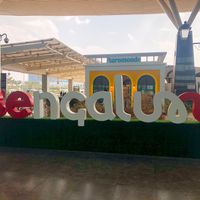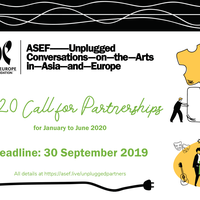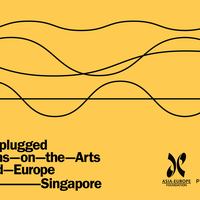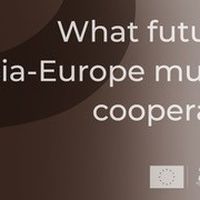Changing Museums in an Evolving World: Some Key Questions
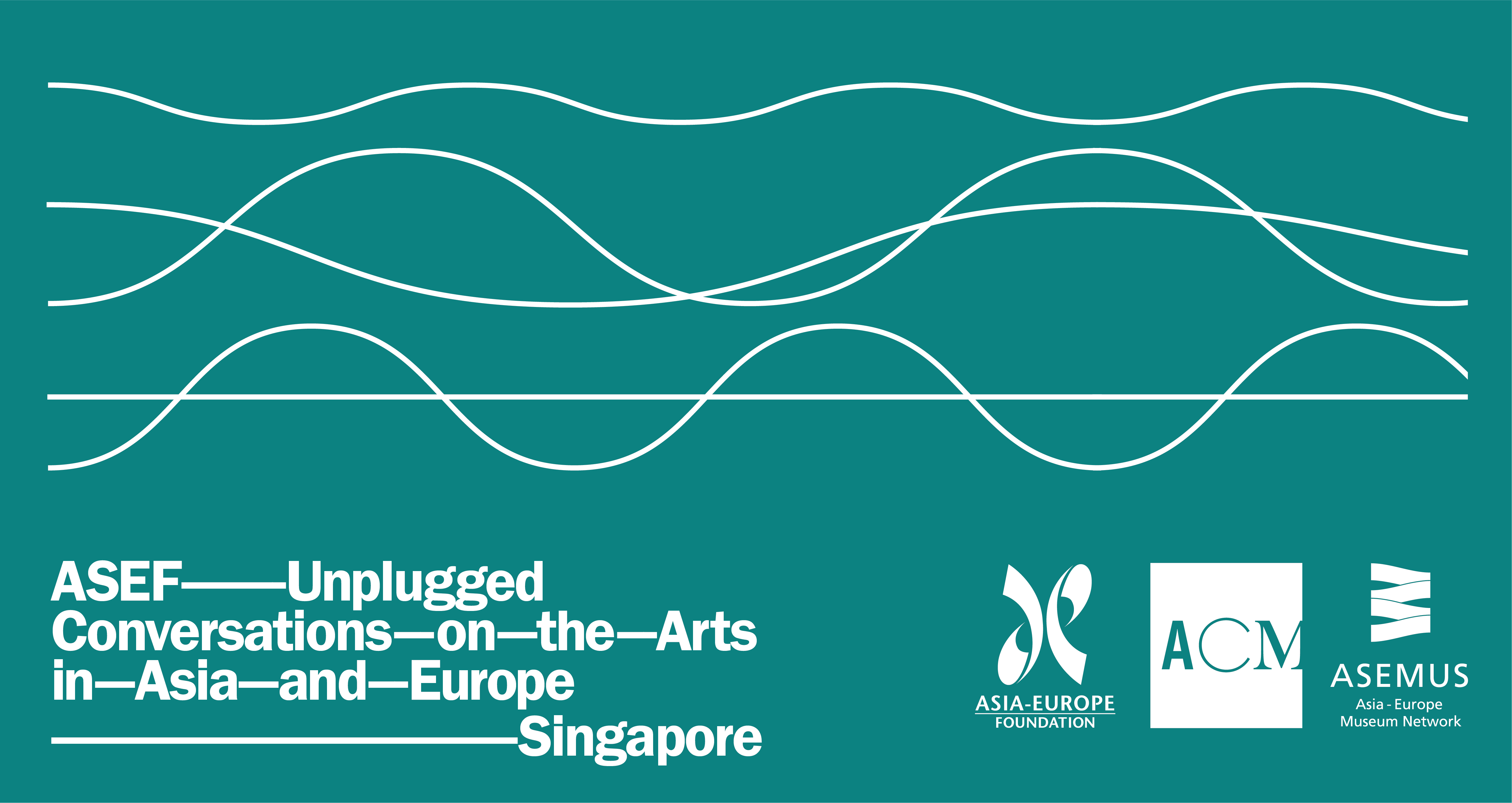
What is a museum, and what function does it serve in society? Simple as these questions may seem, they are not easy to answer, particularly if the aim is to provide definitions that are internationally valid.
These are some of the questions underpinning the debate launched recently by the International Council of Museums (ICOM), in its quest to update the international museum definition. Whereas only 12 years have slipped by since the last revision, this period has witnessed extensive social changes, more demanding audiences, changes in museum’s own activities, and many new political, cultural and environmental challenges. If, as the current definition holds, museums are institutions ‘in the service of society and its development’, they cannot be blind to such evolution. Indeed, the very position of museums, as repositories of memory and knowledge about human endeavours and the natural and cultural world, should necessarily be influenced by external developments. How can museums balance continuity and change, provide perspective yet be reactive to the big questions of today?
The position of museums in society will be addressed at the 13th edition of ASEF Unplugged, a discussion on the role of museums in the 21st century. The conversation is part of the ASEF Unplugged – Conversations on the Arts in Asia and Europe event-series, an initiative of ASEF, which offers open and authentic peer-to-peer conversations on themes of mutual interest. This 13th edition of ASEF Unplugged results from the partnership between ASEF and the Asian Civilisations Museum (ACM) and will bring together a distinguished group of speakers, Ms Ann Follin (Sweden), Director General of National Museums of World Culture; Mr Manuel Rabaté (France), Director of Louvre Abu Dhabi and Mr Kennie Ting (Singapore), Director of Asian Civilisations Museum.

The origins of Louvre Abu Dhabi date back to 2007, when France and the United Arab Emirates came together to develop a cultural institution that represents the dynamic nature of the contemporary Arab world, while celebrating the region’s vibrant multicultural heritage.
The discussion, moderated by Ms Anupama Sekhar, Director, Culture of ASEF, will address contemporary challenges in museum management, including some of the themes presented below:
- Museums vs. the increasing availability of information and knowledge. Just like that of traditional media outlets, the place of museums is challenged by the ubiquity of sources of information and, potentially, of knowledge. How do museums redefine their position in a world of wikis, social media, and “fake news”? How can they enable access to knowledge, and facilitate the co-production of new knowledge, involving audiences and broader communities?
- Museums and regional development. As many studies have shown (see e.g. this recent OECD-ICOM guide), museums are significant drivers of tourism and can contribute to generating employment and wealth, and to positive educational and social outcomes, including self-esteem, identity-building and community engagement. The integration of museums in local, regional and national development strategies poses, however, some challenges. These include the potential priority given to economic interests, the negative impacts of tourism in some major destinations, and the neglect of those museums which, although culturally relevant, may have less economic or social significance.
- Representation, diversity and museum discourses. In many societies, there are increasing demands for minority and lesser-heard voices to be given more space in the public sphere. These groups include women, ethnic and linguistic minorities, the countries of origin of museum artifacts, people with disabilities, etc.. How can museums be more representative of their constituencies? How can these groups be actively involved in museum discourses, collecting, programming and management? And, ultimately, how to balance the representation of pluralism with a shared purpose and opportunities for dialogue and mutual recognition?
- Collaboration and partnerships for social and educational development. Education lies at the core of museums’ mission and is the subject of an extensive number of publications and projects. Recent years have also seen an increasing consensus on their social role. One way for museums to reach out to new audiences and respond to their educational and social mission is to seek partnerships with other stakeholders, including schools, community groups, social organisations, and local and regional governments. What aspects can enable collaboration, what are the challenges involved, and what impacts can be achieved? And how do museums, their staff and their practices need to change in order to maximise collaboration?
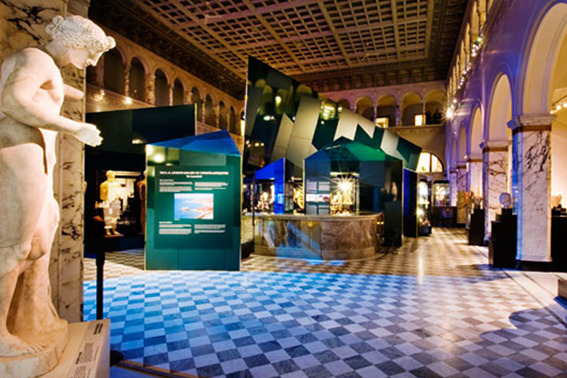
The National Museums of World Culture was established in 1999 as the result of a national initiative to link the international museum collections in Sweden to the globalization process.
- Integrating and facing technology. The rise of technology is both a threat and an opportunity for museums – while, by offering access to a vast amount of resources, online spaces challenge the museum’s role as a safekeeper of knowledge, technological resources also enable museums to digitise their collections, diversify activities, offer new experiences and become more attractive. Indeed, there is extensive evidence of how museums are using augmented reality and other digital and mobile technologies. Are museums ready for this, and do they hold the necessary resources to take this step? What support policies could be necessary? What kind of partnerships with the tech industry can be imagined? And how can museums help society critically reflect on the changes brought about by technology?
- Museums and resilience. In the last couple of years, museums in, among other places, Jakarta, Glasgow and Rio de Janeiro have been ravaged by fires, raising concerns about existing security measures in some cases, and about the impact on collections and the loss of heritage everywhere. This is only one of the many hazards that may threaten museums’ resilience – among them is also climate change. In addition to improving their safety measures and addressing environmental themes in their programming, there are increasing initiatives to strengthen museums’ adaptation to environmental responsibility. How can this work be facilitated?
- Changing funding and business models. In many countries, museums face a reduction in public funding, and, often, changing approaches to free or paid entry. The prestige attached to certain museums also makes them attractive as venues of private events and as recipients of private sponsorship. This can help museums offer more activities and balance their books but may also bring some conditions attached – including an impact on the type and diversity of exhibitions presented, on the price of activities, and on the public nature of institutions. Sponsorship from some companies (e.g. those involved in practices that damage the environment, or in human rights abuses) has also met criticism in several countries.
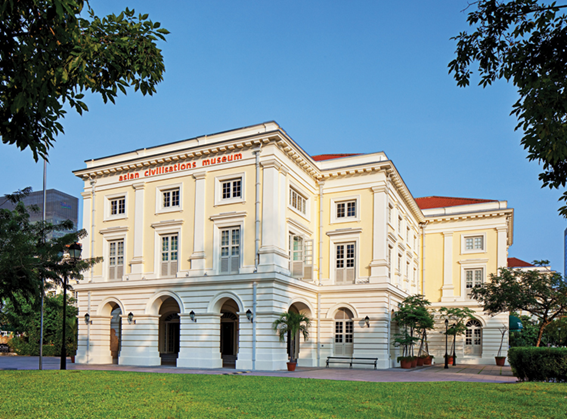
Opened in 1997, the Asian Civilisations Museum (ACM), is devoted to exploring the rich historical connections between the cultures of Asia, and between Asia and the world, especially the ancestral cultures of Singapore.
-
New forms of international collaboration. Initiatives such as the Asia-Europe Museum Network (ASEMUS), and many other examples of bilateral partnerships and thematic networks and projects, have facilitated collaboration among museums in recent decades. Over the years, the context has changed, as proven, among others, by the evolution of European ethnological museums towards ‘museums of world cultures’, involving new forms of relation with other world regions and with migrant communities. Recent times have also witnessed increasing discussions on the issue of restitution of museum artifacts to their countries of origin. In a context in which cross-national collaboration is made easier, and with more demanding audiences and staff, what forms of cooperation are needed?
The 13th edition of ASEF Unplugged will address several of these questions and will raise new ideas and issues to build on the conversation.
ASEF Unplugged – Singapore will take place on 26 March 2019 at ACM. There will be a welcome reception from 18:30-19:00 followed by the conversation from 19:00-20:30.
This article is published as a pre-event article to ASEF Unplugged - Singapore, exploring the role of musuems in the 21st century.
ASEF Unplugged is a new event series of the Asia-Europe Foundation focusing on informal peer-to-peer conversations on arts, culture and heritage. It responds to the growing demand from conference audiences for more interactive formats that allow for greater engagement of participants beyond being mere receivers of information.
ASEF is publicly funded by over 50 partner countries of the Asia-Europe Meeting (ASEM), an informal political dialogue process. Japan is an ASEM partner country.
Written by: Jordi Baltà Portolés
About the author:
Jordi Baltà Portolés is the current Editor of the website of ASEMUS (https://asemus.culture360.ASEF.org)
Similar content
26 Mar 2019 - 26 Mar 2019
from - to
28 Jan 2019 - 29 Jan 2019
24 May 2019
deadline
31 Oct 2019
30 Apr 2019
09 Jun 2021


